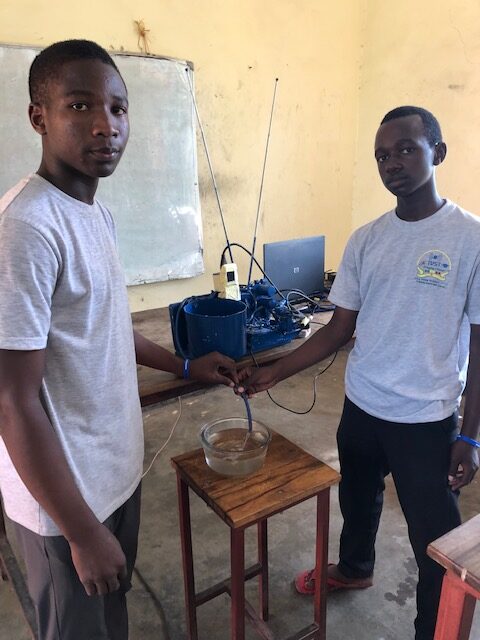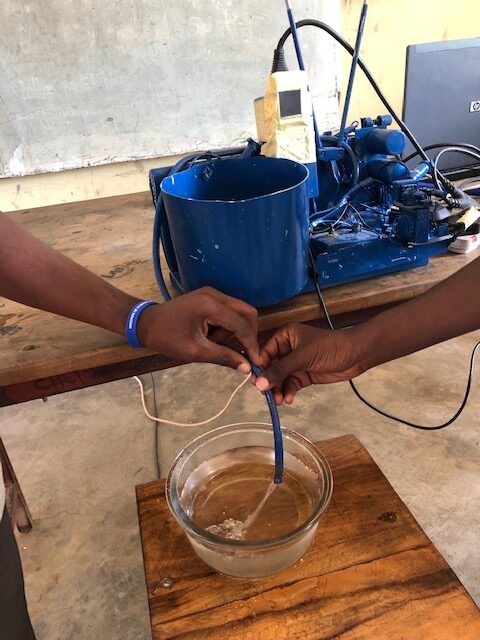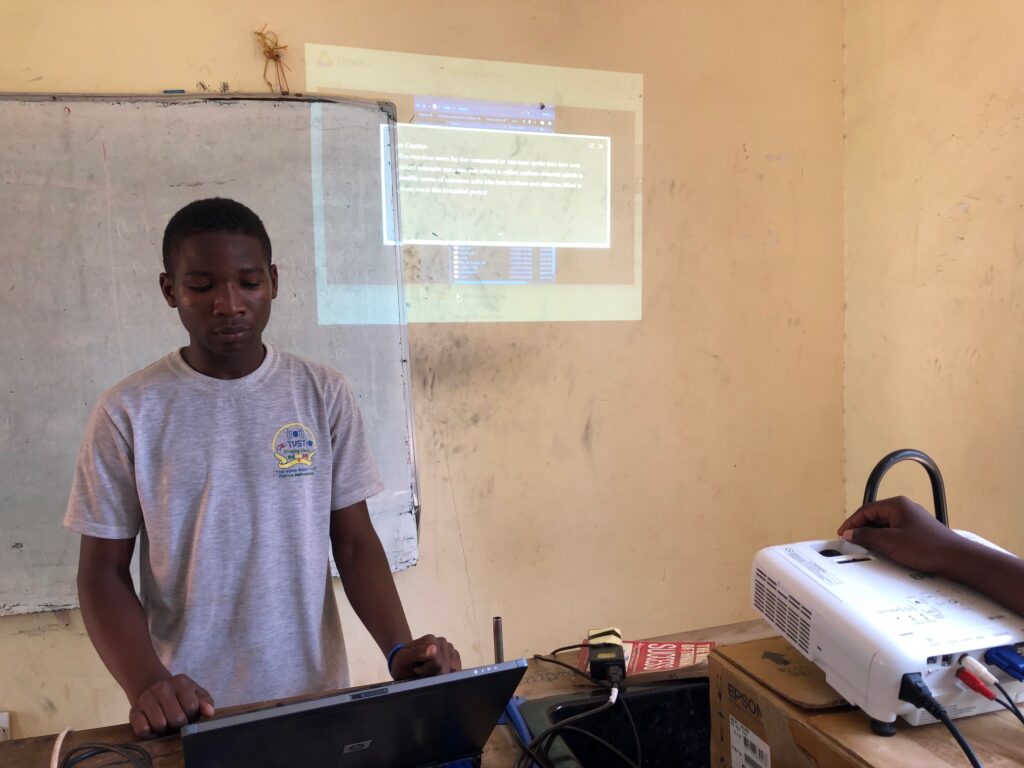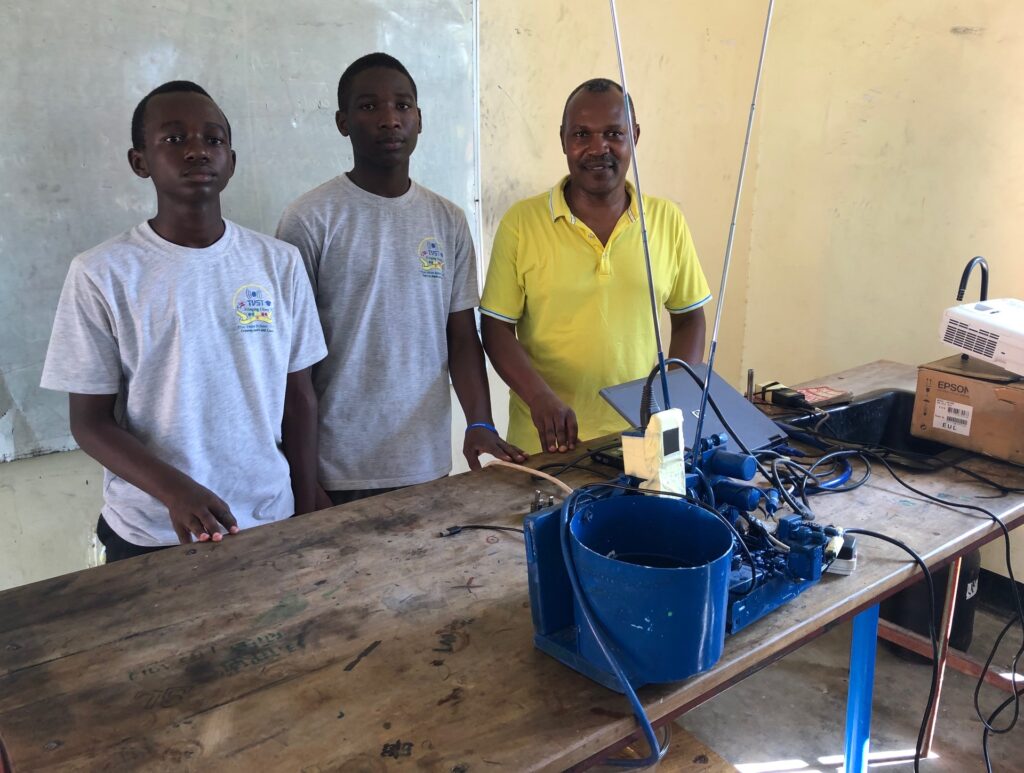Reflections from Helen Harrison as she came to the end of a recent partner visit to four African nations:
The final leg of my African 4-nation, 5-partner visit was to CRED partner Daniel Mpanduzi and The Voice School, a secondary boarding school in Usa River township in Arusha region of Tanzania.
The school was set up by Daniel to fill a gap in provision of education for girls, which he knew was sadly lacking in state schools. The Voice therefore runs on a 2:1 ratio of girls: boys, but also offers access to education for students of both genders who might otherwise not be able to access secondary education due to lack of finance etc. By providing boarding accommodation it also ensures that girls are able to complete their education and not have alternative traditional gender-based expectations come between them and their daily achievements, their monthly attendance, or the risk of getting caught up in early marriages and the like.
It is a really wonderful school to visit, and I always come away inspired by the dedication of the teachers, the determination of the students, and the general atmosphere of the school which oozes a belief that every student can rightfully aspire for great things and aim high, but also is underpinned by selfless support of each other, a celebration of each other, and has faith in God at the heart of it all.
On my most recent visit, one of the highlights for me was to meet two 17-year-old lads, John Julius and Roland Robert. JJ and RR are together proving to be quite the inventors as they demonstrated to me when they showed me a couple of their most recent innovations.

The first invention was an irrigation system that uses a simple mobile phone to initiate the watering. They’ve set it up so that the amount of water released into the reservoir for going through the hose lasts 30 mins – a period that they feel is an adequate amount of time if done in the cool of the morning or the evening. By using the phone, the watering can be initiated remotely. Thus even if the farmer isn’t at home, they can still ensure that their crops get watered every day at the time of choosing. The system is also linked to a thermometer which measures the air temperature. As a result, the farmer can easily see the temperature at home and decide when is the right time to water based on air temperature.

JJ told me how the idea was first initiated by personal experience of farming friends and neighbours who would find themselves away from home sometimes seeking extra income, and as a result were having failed crops due to not being able to be at home to do the watering. The problem, as far as JJ saw it, was how to ensure crops got watered even when the farmer was not nearby.
I’ve come across timer systems before for irrigation, but this was the first time I’d seen one that is based on a mobile phone enabling daily adjusting of the irrigating times, and also does not rely on internet-based communication, which is often very poor and unreliable in more rural areas. A fab idea, which the lads would love to see developed into something that can be used as more than just the current prototype.
The second invention that they showed me is another brainchild of JJ. He is clearly the initiator of the ideas, with RR stepping in to help think through how to turn the concept into a real working prototype.
Named the ‘Helen Programme’ after JJ’s mum, this second invention is a computer based transcriber of lessons that works offline, so again doesn’t rely on the unreliable internet. Essentially, from what I understand, it produces a real-time transcription of the lesson taking place, and is based on the fact that the entire curriculum has been downloaded and so draws from that database of knowledge. JJ designed it initially to be an accessibility tool for people who are deaf and unable to hear what the teacher is saying, and where the teacher doesn’t do sign language etc. But it can also be used as an additional revision tool, and will assist any where they struggle to learn by listening to a lesson.

I confess the finer details of this one were lost on me, as I find computers to be a mystery beyond my understanding, but JJ and RR have great faith in the software that they have written, and have already trialled it in class.
I was so impressed by these two lads. Neither of them have had an easy time in the start of their life, coming from remote and resource-poor families. But they are rising above their potential challenges, looking out for others, and using their love of science, computers and innovation to bring positive change to others.
I look forward to hearing more of their inventions in the future, as I have a feeling this isn’t the last of them!!!





